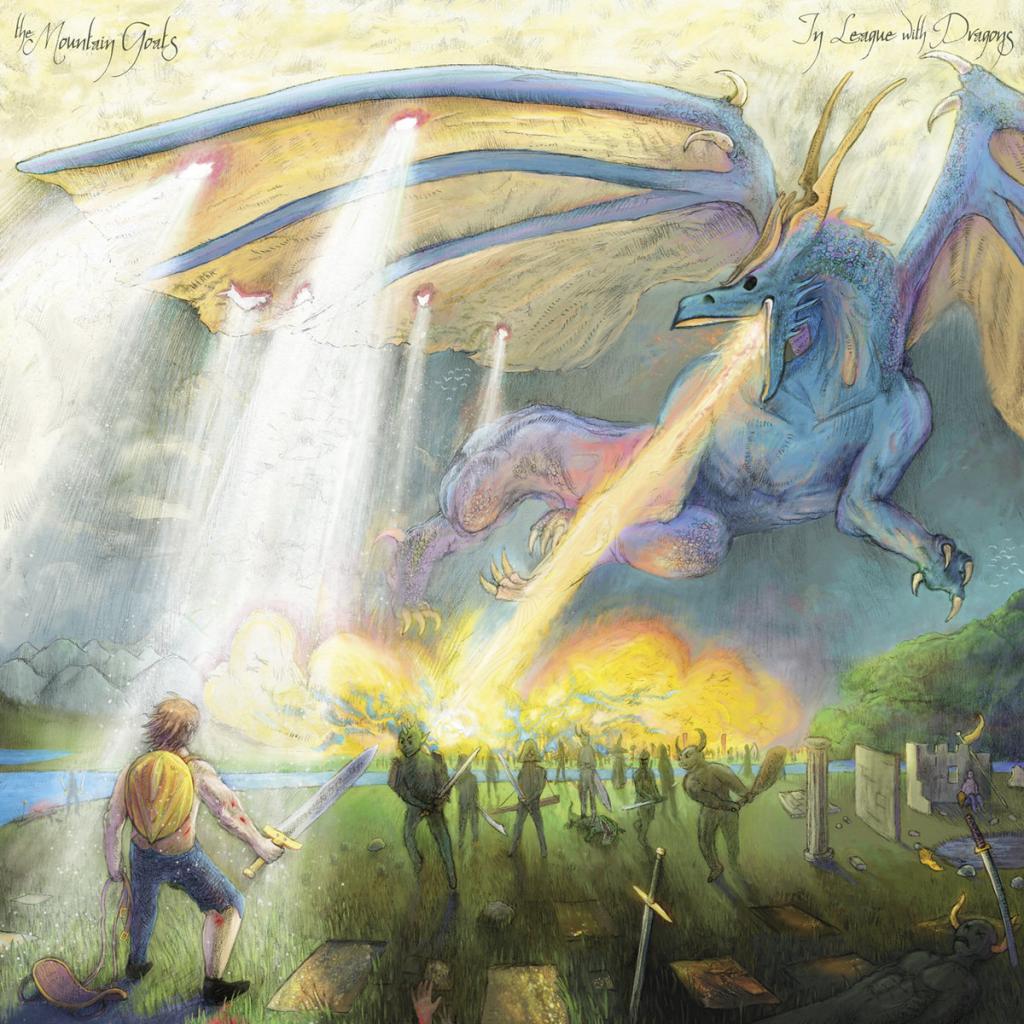The Mountain Goats’ Latest Views Life through Otherworldly Lens

Starting with his debut in 1994, John Darnielle, aka The Mountain Goats, delivered six (mostly) solo projects over the course of eight years, exemplars of late ’90s and early 2000s lo-fi. Signing with 4AD in 2002, The Mountain Goats became a fully instrumented and well-produced band, releasing some of the more expressive projects of the early and mid-2000s, including the raconteurial We Shall All Be Healed, psychodramatic The Sunset Tree, and wistful Get Lonely (one of indie’s stellar triptychs). That said, when reviewing Darnielle’s oeuvre, one doesn’t witness radical stylistic leaps or chameleonic transformations. Rather, one observes a gifted artist operating ambitiously within his own niche. With each album, Darnielle has continued to hone his unique meld of punkish attitude, acoustic emphases, and poetic eloquence, one of popular music’s more articulate and literary-minded songsmiths.
The Mountains Goats’ last two albums have been loosely thematic: 2015’s Beat the Champ referencing professional wrestling, though themes are universally applicable, and 2017’s Goths using striking characterizations (and tongue-in-cheek stereotypes) to illustrate perennial human situations and struggles. The Mountains Goats’ latest, In League with Dragons, suggests otherworldly matters, though the content is more earthy, impressionistic takes on hubris, lessons learned, etc. Listening to the album repeatedly, I was struck that The Greek Myths may have served as a more fundamental inspiration than sci-fi or fantasy sources.
At any rate, Dragons is a sustainedly plaintive project, Darnielle’s voice absent his signature nasality, instead exuding an atypical mellifluousness. While the majority of songs in this set are not hook-driven, they’re engaging all the same, though a proactive listener will be more appreciative of Darnielle’s melodic nuances and lyrical subtleties than a listener expecting to be seduced by pop formulae. The album is one of the more deftly produced and mixed projects in the band’s oeuvre (kudos to Owen Pallett and Matt Ross-Spang). In addition, the album’s instrumentation, including woodwinds, Wurlitzer, synths, and strings, is integral to the its success, engaging musical textures occasionally providing as much or more oomph than the songs that they, in theory, support.
The album opens with “Done Bleeding,” Darnielle’s voice treading a froth of piano, percussion, and synth-y drones. “Younger” shows Darnielle in a reflective mood. “It never hurts to give thanks to the broken bones / you had to use to build your ladder,” he sings, offering an image that would win recently deceased W.S. Merwin’s approval and replete with numerous interpretive possibilities. The oscillation between his solo/untreated voice and a palimpsest of chorus-y vocals is striking.
“Clemency for the Wizard King” will remind some listeners of Our Endless Numbered Days-era Iron & Wine, showcasing Darnielle’s whispery vocal. The buoyant title song occurs as a riff on Tolkien’s work but more clearly centers on Darnielle’s observations about the ways of the world, a balance of stoicism and advocacy for the authentic life (“Gotta be strong in the face of suffering / cut a good figure just in case somebody’s watching / … let the breezes spread such scandal as they may”). The Flamenco-style guitar part on “Doc Golden” adds a touch of the exotic. “Waylon Jennings Live!” shows the band embracing a credible country backdrop. “An Antidote for Strychnine” is the album’s highpoint, a pensive and reverb-y soundscape that reminds me of The National’s “I Need My Girl.” The piece shows Darnielle at his most vulnerable — and most effective — a direction I wish he would pursue more regularly. The song depicts the life of a chemist “trying to find an antidote for strychnine” and highlights Darnielle’s career-long gift for rendering portraiture that is concurrently individual and universally relatable.
Dragons shows Darnielle continuing to explore his vocal palette, maximizing tonal variations and fluctuations in volume. The band navigates complex textures and mixes, employing a wide assortment of instruments and sounds. And Darnielle’s lyrics are as precise and evocative as ever. In League with Dragons is The Mountain Goats’ 17th album. If I were making a gut call, I’d say that the project lands around eighth or ninth on the “from best to worst” list. When speaking about The Mountain Goats, that translates to a pretty damn good record.




